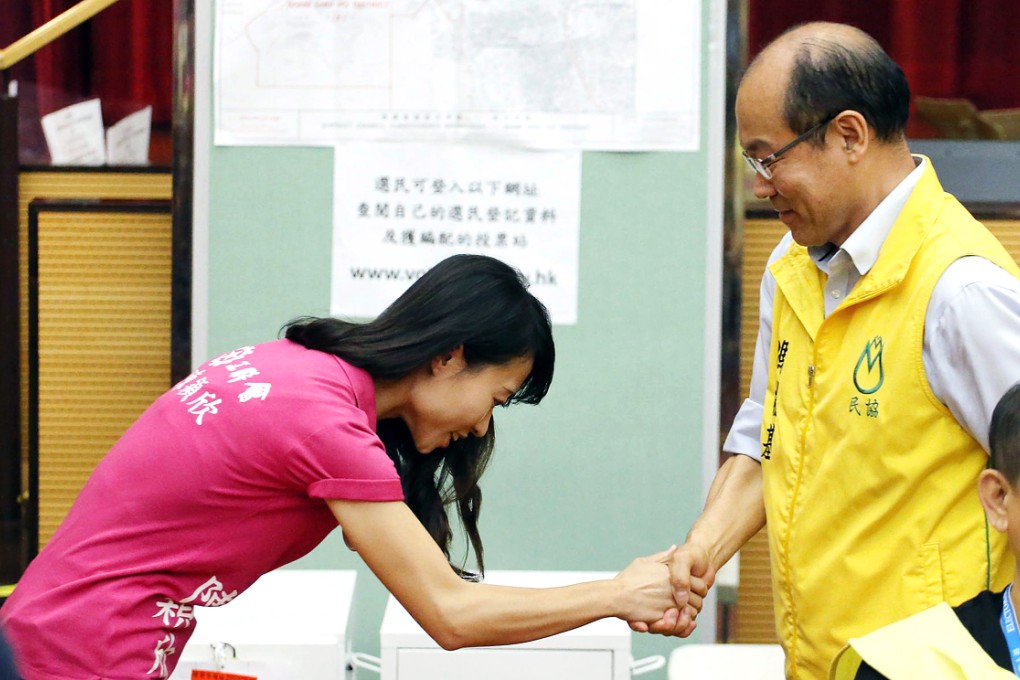Hong Kong political gulf not closing any time soon
If the district polls are any indication, both Beijing loyalists and pan-democrats cannot make significant headway against other side

The final tally of district council election results following a historic voter turnout on Sunday reveals deeply entrenched political positions dividing the city despite the passing of nearly a year since the conclusion of the Occupy democracy movement, with no end in sight to the stalemate.
But young candidates turned in an impressive performance - including some who were inspired by Occupy to contest district seats and won - signalling a desire among the electorate for change or, as one analyst put it, to see fresh faces take centre stage.
The citywide polls were the first since the 79-day Occupy protests ended in mid-December, and were remarkable for drawing a record 1.47 million voters.
That turnout of 47 per cent surpassed the previous record of 44 per cent who voted in 2003, two months after a 500,000-strong July 1 march forced the government to withdraw a draft of national security legislation.
Pro-establishment expectations of voters punishing pan-democrats for backing Occupy did not materialise. Pan-democratic groups won 94 seats, up from 83 in 2011, while Beijing loyalists won 191 seats, up from 160.
Another seven "umbrella soldiers", inspired by the mass sit-ins, emerged as dark horses upsetting more veteran rivals.
